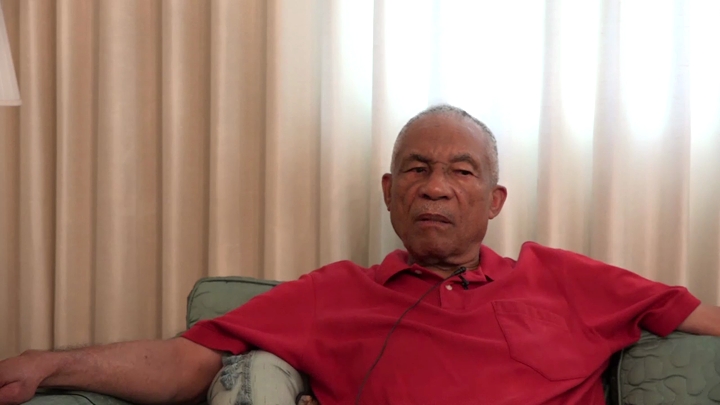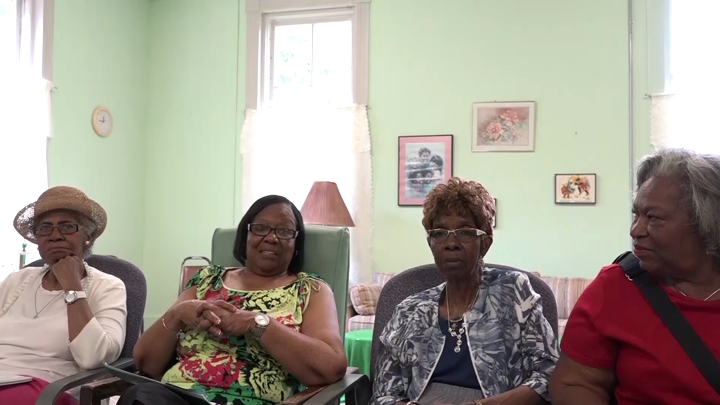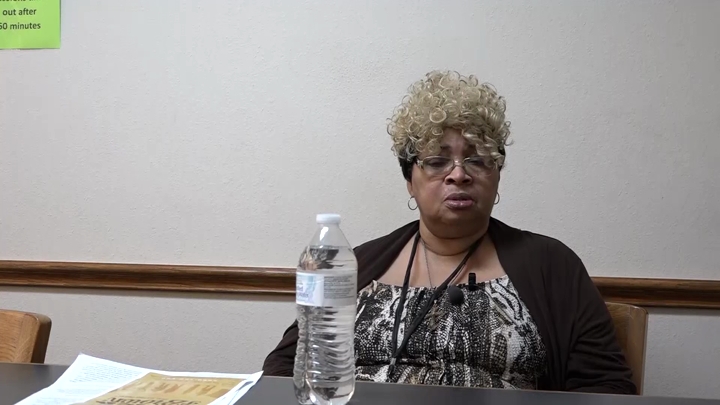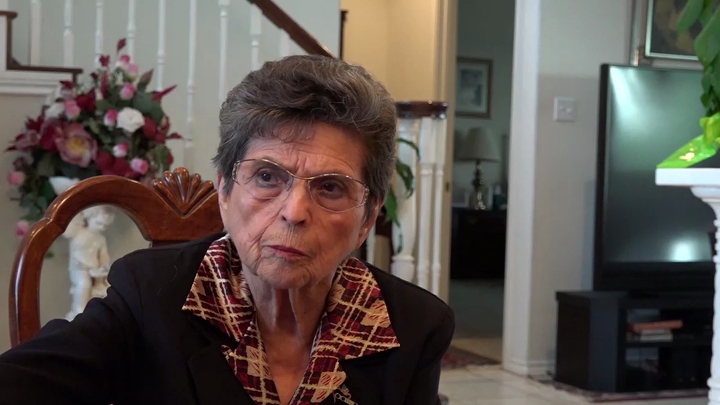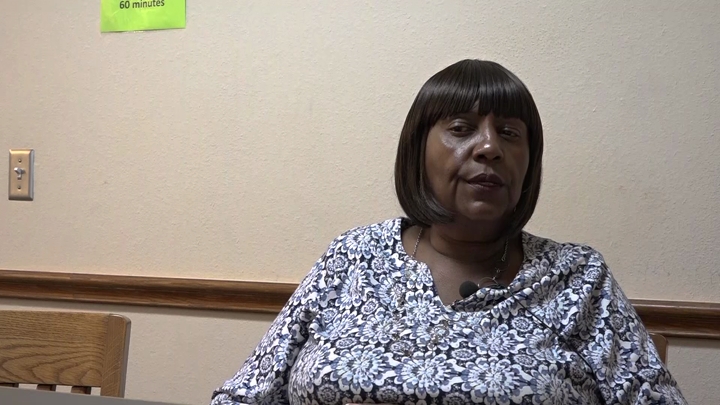Wilborn / Integration in Marshall Schools
sign up or sign in to add/edit transcript
Interviewer: That reminds me. When schools integrated here in Marshall— Wilborn: In 1970, (inaudible) a trial basis. We had what they call team teaching. Matter of fact, I was supposed to be on that team-teaching deal, but I begged out of it. I didn’t want any part of it, so I was able to get a young lady who worked with me who had been working with whites all her life. Matter of fact, she looks white, the teacher. She accepted this job. So, you can get somebody, we won’t get you. Said you can get somebody to take your place, we won’t. I was able to get her. We were good friends. You been around them and you know how to handle them. They think you one of them anyway. So, she went but she told later on she caught hell. She didn’t tell me until about fifteen years later. We talked—we just happened to be talking. She said, “I let you trick me. I caught hell.” Interviewer: What is team teaching? Wilborn: One white. One black. You taught at the white school a half a day. You taught at the black school a half a day. Acclimating the students to the races, so to speak. Interviewer: How long did that go on? Wilborn: One or two years. I’m not too sure. Then, we completely integrated and then I went to Davy Crockett. I stayed at Dunbar Elementary School eleven years, all black school. Then, I went to Crockett and stayed there eleven years. Then, they had a new concept where they built a middle school. They took away the sixth grade and they had—no, no, they took away the fifth and sixth grade. They had a fifth and sixth grade school, middle school. K through four was in elementary school that March. They moved me to a—see, I was teaching math and my students were outscoring everybody in the school system. I’m sure before we integrated, because we make comparative scores, I was definitely—I scored all the black schools and I was probably ranked about number two schools period in the school system in all the black school. So, when I got over here in (inaudible), we were outscoring. They sent me there and my big mouth, because I told the principal one day, I said, “One thing we can do is memorize. Been memorizing all my life.” Superintendent said memorizing was the lowest form of learning, but I always questioned theat. In a meeting, I said, “Well, what about the surgeons? They got to have a book when they read? What about the men going to the moon? Isn’t that word assimilation—isn’t it synonymous to memorizing? Don’t they go to through over and over again? Isn’t that a form of memorizing?” Oh John, I knew you were going to say something. I said, “I just want to know.” (inaudible) get mad at me because I’d always ask. I wasn’t afraid to ask. I wasn’t going to let you sit up and tell me I was a dummy because I could memorize. I said the musicians. I know when you major in music, you got to do a concert and they got to memorize everything. They may take two hours. They make one mistake and they fail. They don’t get their degree in music. That the way Bishop and Wylie—I know when I was in school, the way it was. (inaudible) So, I gave those examples. That was the end of that conversation. What it was, you take away—I know what it was. They were neutralizing us. We could (inaudible) really, because a lot of us would have been doctors or lawyers and so forth but didn’t have the money. We ended up being teachers and you do that, neutralize you, you got a complex there and you feel like everything’s right. Like I was reading a book where you stand over students and they would be quiet.
| Interview | Interview with John Wilborn |
| Subjects | Discrimination or Segregation |
| Education › Elementary Education | |
| Education › Secondary Education | |
| Education › Education and Integration | |
| Education › Teachers and Administrators | |
| Historic Periods › 1970s [Exact Date Unknown] | |
| Ideology › Integrationism | |
| Tags | Dunbar Elementary School, Marshall, TX |
| David Crockett Elementary School, Marshall, TX | |
| sign up or sign in to add/edit tags | |
| Interview date | 2015-06-23 |
| Interview source | CRBB Summer 2015 |
| Interviewees | Wilborn, John |
| Locations | Marshall, TX |
| Duration | 00:04:37 |
| Citation | "Integration in Marshall Schools ," from John Wilborn oral history interview with , June 23, 2015, Marshall, TX , Civil Rights in Black and Brown Interview Database, https://crbb.tcu.edu/clips/1452/integration-in-marshall-schools, accessed February 27, 2026 |


